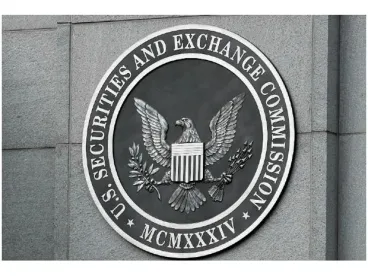The U.S. Court of Appeals for the First Circuit recently overturned an order by the U.S. Securities and Exchange Commission (Commission) in which the Commission had imposed sanctions against two former banking executives for violations of the federal securities laws. In so doing, the First Circuit offered a stern rebuke to the Commission and its administrative process. Among other things, the court found that the Commission had abused its discretion and had even “misread” the evidence before it.
The case stems from an enforcement action against the two individuals for alleged misrepresentations to investors concerning a bond fund during the 2007 subprime mortgage crisis. The SEC’s own administrative law judge found no evidence to support a case against the two men, and she dismissed the case against them, holding that the documents that formed the basis of the alleged securities laws violations did not contain materially false or misleading statements or omissions. Unsatisfied with that outcome, the SEC’s enforcement division appealed to the Commission, which reversed the administrative judge, staked out an overzealous position with regard to its interpretation of the securities laws, and imposed sanctions. In vacating the Commission’s order, the First Circuit found that the Commission overreached, and that the evidence upon which the Commission relied was either nonexistent or flawed. The court noted the absence of any testimony from investors in the bond funds that the allegedly misleading statements were misleading or material, holding that the Commission had “failed to identify a single witness that supports a finding of materiality.” In addition, the Commission based its decision in part on its conclusion that a letter sent to fund investors was misleading; the Court rejected that conclusion, noting that the Commission itself acknowledged that there was nothing inaccurate in the letter. The Court found that the Commission had “misread the letter.” As to another piece of evidence, the Court noted that “context makes a difference,” implying that the Commission chose to ignore the context in which the alleged representation was made. The Court also noted other of the Commission’s findings to be “marginal” and “thin.” Ultimately, the Court found that there was no evidence that the two individuals had done anything wrong – precisely the same finding made by the SEC’s administrative law judge.
The cases are Flannery v. SEC (Docket No. 15-1080) and Hopkins v. SEC (Docket No. 15-1117).



 />i
/>i


